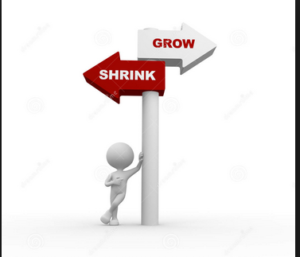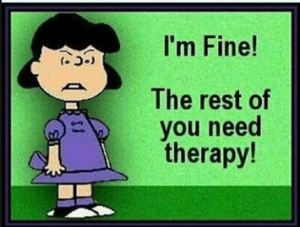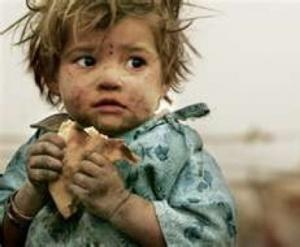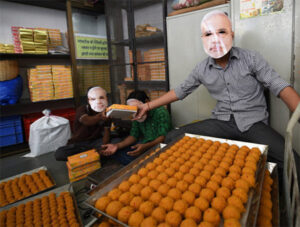Which way to go when you need a shrink for growth ! Mental health is not just about abnormal psychology, but it covers the whole gamut of issues that makes a person happy and productive. I remember reading a Tamil book on psychology the title of which roughly translates to “Some are inside; some … Continue reading “Mental Health : The India Story”
 Which way to go when you need a shrink for growth !
Which way to go when you need a shrink for growth !
Mental health is not just about abnormal psychology, but it covers the whole gamut of issues that makes a person happy and productive. I remember reading a Tamil book on psychology the title of which roughly translates to “Some are inside; some outside” . The book is a series of case studies, where the first part deals with patients in a lunatic asylum and the second part about socially acceptable people from all walks of life. The studies goes on to show that people from the latter category are as abnormal as the former the only difference being that their peculiarities are dismissed as harmless idiosyncrasies.
India is no place for people needing mental health-care. Any violent cases are physically retrained and kept away from the eyes of the society. People with mild to serious problems not leading to violence are considered absolutely normal and they go about their day to day life, as long as they can fulfill certain criteria. A child is OK as long as he or she gets good marks(or grades as called in the West) in school. Habitual lying, extreme laziness, reluctance to interact with other kids or whatever other abnormalities would be condoned as long as the marks keep coming. In fact the parents find ingenious ways to defend every shortcoming. A child scared of jumping into a swimming pool or riding a bicycle would be called a cautious type and the kid who wouldn’t talk to other kids, a reserved type. So is it with adults. A man who can earn a livelihood, and a woman who can keep a job or run a household may be absolved of any form of mental illness.
Can we define a mentally normal person ? Very subjective definition it would be. An adult should be able to develop himself or herself to be fully self-dependent physically, mentally and financially. The person should be in a position to realize her full potential or for self-actualization as in Maslow’s theory of hierarchy. Most importantly he should not be emotionally dependent on others for his very survival. Loneliness is a legitimate and socially acceptable ruse to become an emotional parasite on parents ,spouse or children. I don’t suggest that everyone should stay alone , but I feel one should develop such a capacity for self dependence that would lead to healthy inter-dependence and a win-win situation in a relationship. Lastly , one should be mentally strong enough to face the myriad challenges that life throws at you in personal and professional fields.
In the West people are generally encouraged to get out of harmful relationships or work environment. By harmful, I mean not very conducive to physical or mental health. Here, most people are virtually locked into an environment at home or the work-place. Till the last generation, one joined a profession or a company to retire from that profession or organization at 60. Job hopping was generally looked down upon. At home, not one or two, but three generations lived together , be it a nurturing or abusive relationship.
I am reminded of kahil Gibran’s words
Let there be spaces in your togetherness, And let the winds of the heavens dance between you. Love one another but make not a bond of love: Let it rather be a moving sea between the shores of your souls. Fill each other’s cup but drink not from one cup. Give one another of your bread but eat not from the same loaf. Sing and dance together and be joyous, but let each one of you be alone, Even as the strings of a lute are alone though they quiver with the same music. Give your hearts, but not into each other’s keeping. For only the hand of Life can contain your hearts. And stand together, yet not too near together: For the pillars of the temple stand apart, And the oak tree and the cypress grow not in each other’s shadow.
In India , we don’t talk about Oak and Cypress but a family or a clan is likened to a clump of banana trees , one taking root from the other and feeding on the other and has just one identity as a clump.
Now that clump is falling apart and the individual identities are being recognized , the warts are also show up. It is only recently that terms like depression, OCD and neurosis are being talked about. Obviously, it does not mean that people did not suffer from these maladies earlier.
 So how did people cope up ? Going to a psychiatrist was neither a socially accepted option nor was it financially viable. One just looked to friends and religion for solace. May be that is the reason every part of the country had a place for all kinds of religious figures. (God-men somehow does not feel right). In a way, these holy men and women , though not trained for this role had some sort of ability to identify mental problems and provide some comfort to the troubled souls. Of course , in an unregulated field there is bound to be exploitation of the willing victims.
So how did people cope up ? Going to a psychiatrist was neither a socially accepted option nor was it financially viable. One just looked to friends and religion for solace. May be that is the reason every part of the country had a place for all kinds of religious figures. (God-men somehow does not feel right). In a way, these holy men and women , though not trained for this role had some sort of ability to identify mental problems and provide some comfort to the troubled souls. Of course , in an unregulated field there is bound to be exploitation of the willing victims.
Depression and Neurosis apart, , mental well being should be seen as , not just staying away from trouble, but to consistently evolve into a better person, to grow mentally and spiritually. We see many children and adults stuck in such environment at home and at work place where their spirits are constantly under assault, their talents are not allowed to bloom and fun goes out of their lives. Their lives are spent in monotony and mediocrity.
It is only of late , we have counselors appointed at schools for advising students and parents. This is prompted by the spate of suicides by students failing in exams., rather than to help good students perform better. There is such a stigma attached to being counseled that no student wants to be seen outside the counselor’s room.
Approximately 1 in 5 adults in the U.S.—43.8 million, or 18.5%—experience mental illness in a given year. For details click here. That’s an alarming figure. From the data one can either deduce that , it was indeed a mentally sick society, or one can also see it as a society that caters to the needs of mental health care for all to live a happy and productive life; a society not willing to accept mediocrity. Here again , welfare states spend more time, effort and money on preemptive health care. That is where rights of children assume great significance.
Today, we are moving towards the West in every aspect ; language , food, clothing, music and so on. Oats and orange juice are replacing the traditional puri or idli for breakfast. Parents actually restrain children from speaking in an Indian language; sadly so. Why can’t we get something good from the west ? Why can’t we look at mental health care as a need for overall development of a child or an adult , with no stigma attached to psychotherapy ?



 So how did people cope up ? Going to a psychiatrist was neither a socially accepted option nor was it financially viable. One just looked to friends and religion for solace. May be that is the reason every part of the country had a place for all kinds of religious figures. (God-men somehow does not feel right). In a way, these holy men and women , though not trained for this role had some sort of ability to identify mental problems and provide some comfort to the troubled souls. Of course , in an unregulated field there is bound to be exploitation of the willing victims.
So how did people cope up ? Going to a psychiatrist was neither a socially accepted option nor was it financially viable. One just looked to friends and religion for solace. May be that is the reason every part of the country had a place for all kinds of religious figures. (God-men somehow does not feel right). In a way, these holy men and women , though not trained for this role had some sort of ability to identify mental problems and provide some comfort to the troubled souls. Of course , in an unregulated field there is bound to be exploitation of the willing victims.

 It reminds me of a song by Namakkal Ramalingam Pillai made popular through MGR Starrer “
It reminds me of a song by Namakkal Ramalingam Pillai made popular through MGR Starrer “
 Thirdly is the popularity of debating societies or “patti manram” as they are called in tamil. Top speakers are house hold names and some are even treated as rock stars ; in great demand for any cultural or social functions. While Sunday debates are telecast by popular TV Channels, Festivals like Pongal and New year witness Special Bumper Patti manram. It is absolutely amazing to see a full house patiently listening to a group of men and women discussing a social or literary issue, quite unlike Arnab Goswamy’s panelists. The debate could be a passionate discussion on who was a nobler character in mahabharatam, karnan or arujnan or it could be a subject that touches every life; Who has more influence on bringing up a child, the teachers or parents. It could even be some trivia like idli tastes better with chuttney or sambhar. Week after week people do come up with a new subject for testing their eloquence and of course the capacity of audience to sit through hours of talk-talk-talk
Thirdly is the popularity of debating societies or “patti manram” as they are called in tamil. Top speakers are house hold names and some are even treated as rock stars ; in great demand for any cultural or social functions. While Sunday debates are telecast by popular TV Channels, Festivals like Pongal and New year witness Special Bumper Patti manram. It is absolutely amazing to see a full house patiently listening to a group of men and women discussing a social or literary issue, quite unlike Arnab Goswamy’s panelists. The debate could be a passionate discussion on who was a nobler character in mahabharatam, karnan or arujnan or it could be a subject that touches every life; Who has more influence on bringing up a child, the teachers or parents. It could even be some trivia like idli tastes better with chuttney or sambhar. Week after week people do come up with a new subject for testing their eloquence and of course the capacity of audience to sit through hours of talk-talk-talk



 The villain could be anyone who is involved in expending some milk. It could also be symbolically expressed by just show of wealth. A lot depends on who is your target. If you think the govt is to blame … then show a Govt partying… Add a caption ,
The villain could be anyone who is involved in expending some milk. It could also be symbolically expressed by just show of wealth. A lot depends on who is your target. If you think the govt is to blame … then show a Govt partying… Add a caption ,









